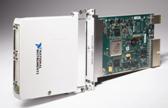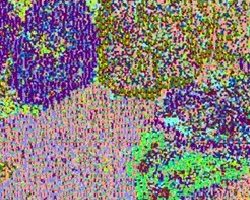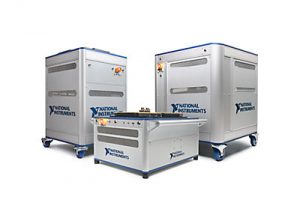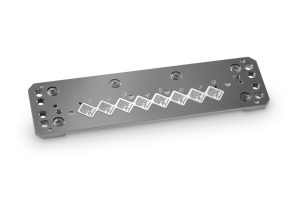
“What if the user decided which IP they need for the test set-up and then were able to download it from the internet on to configurable hardware?” asked Charles Schroeder, director of product marketing for test at National Instruments.
There is the potential to move away from generic test set-ups. “We are now in a position where we can use FPGAs to match the needs of the items under test,” said Schroeder.
The point is that standard test instruments such as RF spectrum analysers, vector analysers and power meters all use a similar hardware platform.
“It is the firmware which is tuned for performing specific instruments,” said Schroeder.
“What if this was downloadable IP?” asks Schroeder.
Schroeder believes the breakthrough came with the availability of the latest high performance FPGAs. “These provide the test environment with configurability, scalability and modularity,” said Schroeder.
“With a x2 increase in performance across the board,” said Schroeder, who was speaking at the company’s NIDays technology forum in London last week.
NI is starting down the road of ‘downloadable instruments’ with a library of downloadable IP for basic test functions on its website.
“It is like an apps store for test and measurement,” said Schroeder.
The Instrument Development Library is a set of host and FPGA “building blocks,” written in LabView, which is designed to be general purpose and usable across a range of FlexRIO FPGA modules and adapter modules.
“We have IP for acquisition engines, DRAM interfaces, and trigger logic, along with the associated host APIs. It is open source and can serve as the starting point for the engineer to customise their own instrument, for example a digitiser,” said Schroder.
The Instrument Development Library was launched earlier this year with the NI-573xR example instrument driver which uses the library of code to create a default FPGA personality and familiar host API for using an NI 573x adapter module as a basic digitiser.
It is not intended to replace the functionality of a general-purpose digitiser programmed with NI-SCOPE, but rather to allow you to begin taking measurements quickly with your NI 573x hardware, eliminating the need to first compile FPGA code.
“We will roll out downloadable IP for more standard products in the next 12 months,” said Schroeder.
According to Schroeder, the key has been the ability to have configurable hardware with the performance of high-end FPGAs “This has been a disruptive technology and we intend to capitalise on it as much as possible,” said Schroeder.
 Electronics Weekly Electronics Design & Components Tech News
Electronics Weekly Electronics Design & Components Tech News



